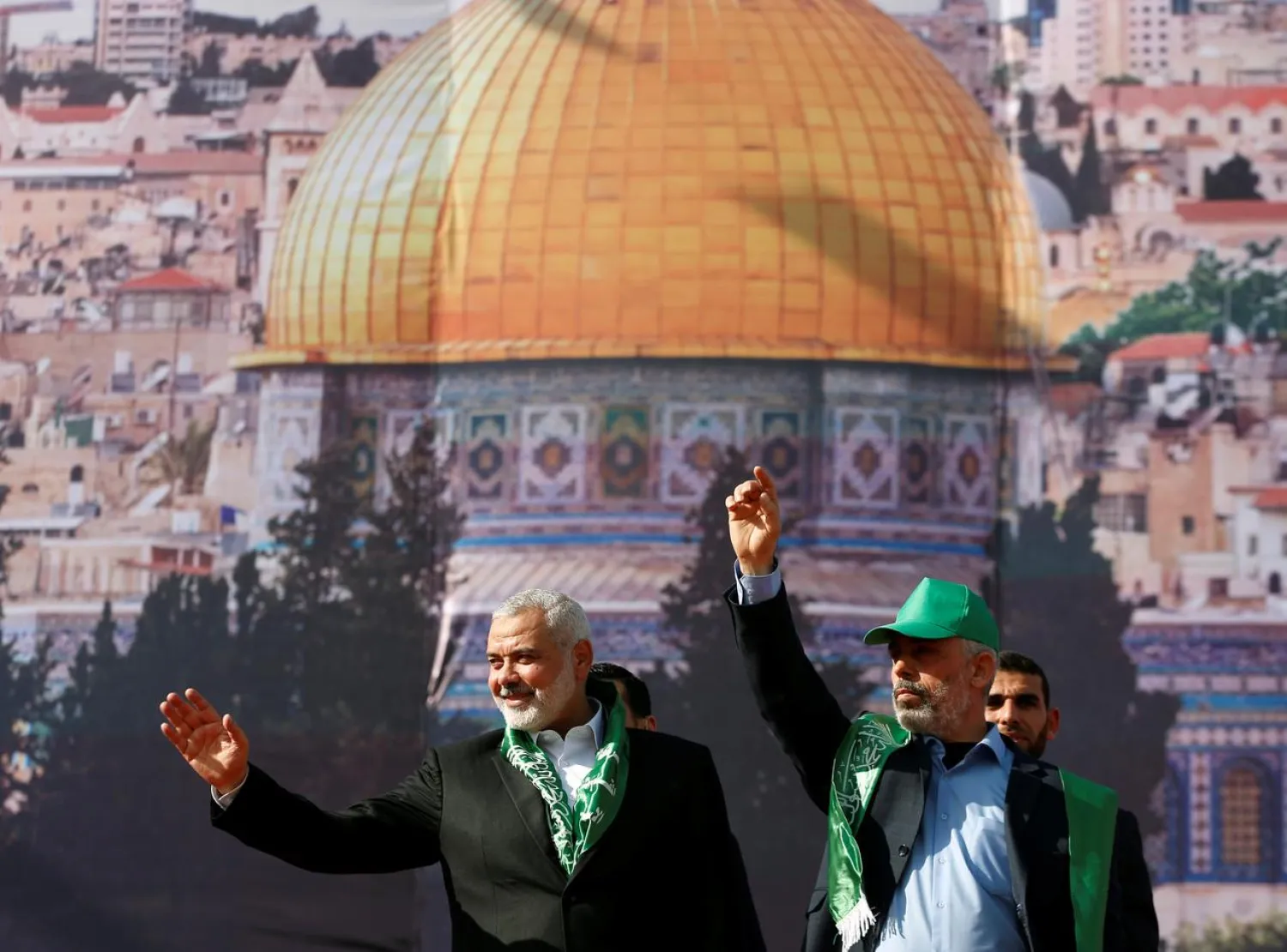Israel and Hamas exchanged threats after the latest round of escalation, despite their assertion that they were not seeking confrontation at this stage.
Hamas chief in the Gaza Strip Yehya al-Sinwar told a gathering of youth on Monday: “It is no secret that we have hundreds of kilometers of tunnels, thousands of ambushes, anti-armor and locally manufactured rockets. We will turn the cities of the occupation into ghost cities if they thought of committing any folly.”
He added that Hamas succeeded in forming a joint operation room with the participation of 13 military wings of the Palestinian factions to confront Israeli aggression.
He also stressed that Iran “has the greatest credit in building our strength… It has provided us with weapons and money, without which we would not have reached this point.”
“We heard statements of the leaders of the occupation threatening us… but we will make them curse the day they were born,” Sinwar warned.
Sinwar’s threats came in response to recent comments by Israeli deputy Prime Minister and Foreign Minister Yisrael Katz, who said: “A government under my leadership will not tolerate a threat to the residents of the south and will not accept any harm to its sovereignty. We will bring back deterrence at any cost.”
On Saturday, Israel killed a Palestinian and wounded three others in a night of escalation in the Gaza Strip, which witnessed a series of raids targeting various locations, in response to the firing of a series of rocket-propelled grenades at Israeli settlements and towns around the coastal enclave.









